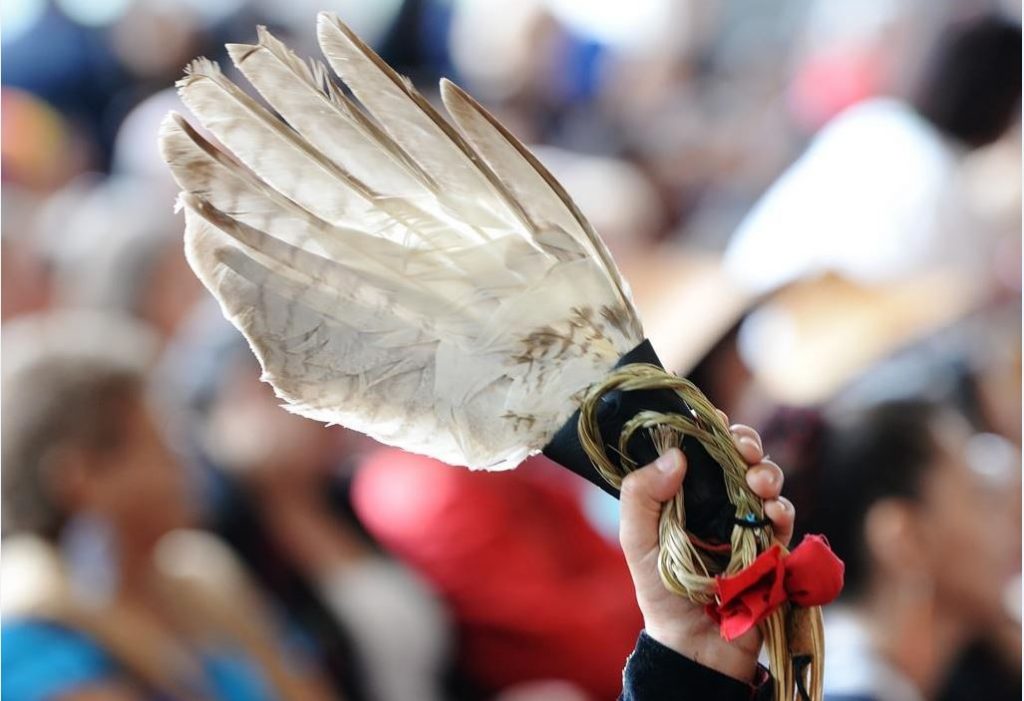How Alberta plans to end violence against Indigenous women, girls, and 2S+ people

Posted Jun 3, 2022 5:47 pm.
Last Updated Jun 3, 2022 5:50 pm.
The Alberta government has come out with a plan to end violence against Indigenous women, girls, and 2SLGBTQQIA+ people.
Alberta has announced a Premier’s council on Missing and Murdered Indigenous Women and Girls (MMIWG Council) which focuses on highlighting issues that need to be resolved to eliminate violence against the community.
It will include Indigenous women and have a five-year mandate.
Related Article: Siksika First Nation $1.3B land claim settlement addresses injustices of the past
The province also brought forward a roadmap focusing on four different pathways it believes will address the root causes of violence identified by the National Inquiry into Missing and Murdered Indigenous Women and Girls including:
- Community connections, healing and cultural supports
- Education, economic independence and infrastructure
- Community wellness and improving the justice system
- Accountability to and inclusion of Indigenous women and girls
The roadmap will be used to guide the province on how to move forward with policies and legislation in this area.
“We’ve had a panel working for two years on this, and my God, the hours they’ve put in and the tears that we’ve shed,” Rick Wilson, Alberta’s Indigenous Relations minister said on Friday.
Related Article: Canada’s inaction on MMIWG calls to justice a ‘national shame’: NFSC
Every week, they’re meeting for hours putting this together. I know everybody thinks this is the most important work we’ve done in our careers — something to look back on and be proud of, that we can actually make a difference and save some lives and protect people,” said Wilson.
“For far too long, Canada has failed Indigenous women, girls and 2S+ peoples. Today, we will remember, listen to the voices of survivors, families, and community members, and will act to make Alberta safer for all who call this province home. It’s not just up to the government: we all have a role in putting an end to the systemic racism that contributes to this ongoing tragedy. I call on everyone in Alberta to help us walk this path together,” he added in a statement.
However, with no exact budget or timeline forward being announced, critics feel there isn’t much to this announcement.
“It’s easy to make a policy on paper, but if you don’t commit budget lines to it and if you don’t put forward action to allow that and acknowledge the barriers that a lot of grassroots folk face in order to make that change, then it is [a] worthless piece of paper,” Michelle Robinson, a Sahtu Dene woman and member of the Reconciliation Action Group, told CityNews.
Related Article: Indigenous women more likely to face violence if they were a child in care: report
“The paper press release [from the Alberta government] looks lovely, but what does that mean when I know that caucus doesn’t honour what our experience has been whether through Indian residential schools or the long-standing colonial history that we’ve had. So, it’s really difficult for me to see anything of substance come from this except a very nice press release.”
She says racism against Indigenous people is painfully clear in this country — noting Bill 1, the Critical Infrastructure Defense Act, was passed to stop Indigenous protestors and supports from blocking trains, pipelines, and other infrastructure — while arguing, that the kiddie gloves were put on to handle white protestors shutting down a border crossing in Coutts, AB over pandemic restrictions.








